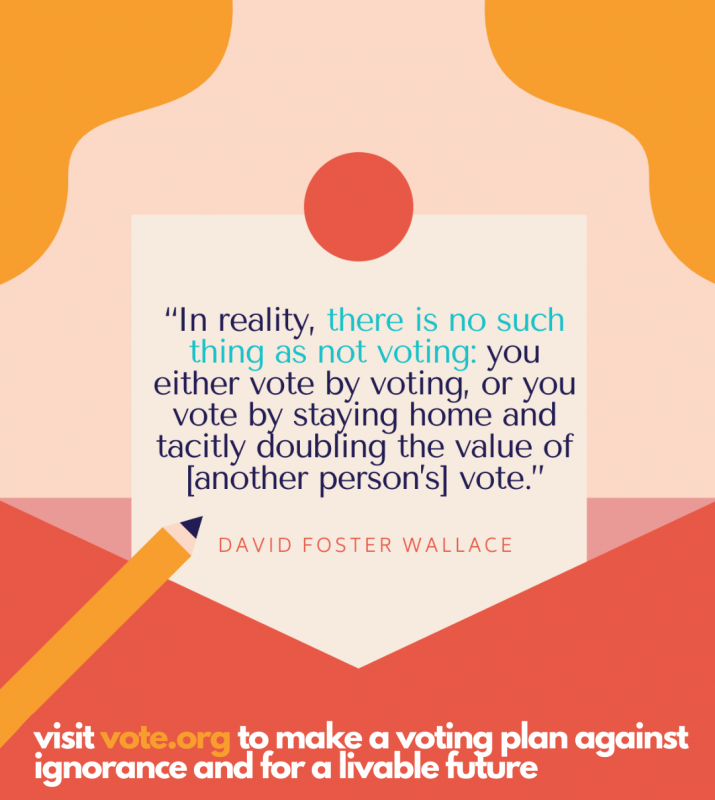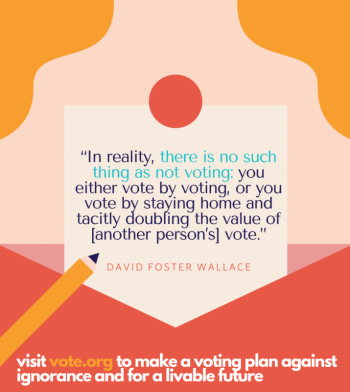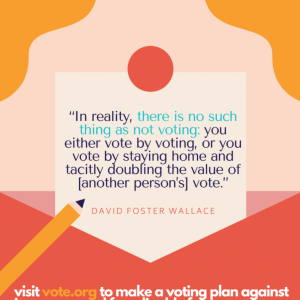Nothing is accomplished without compromise
Finding middle ground is one of the most important parts of being a good teammate. Athletes on winning sports teams understand that they must set aside their differences in order to win. Striking a compromise that suits everyone’s strengths is rarely easy, especially under pressure. This takes communication and empathy.
Right now in America our government is not functioning like a team and our democracy is at risk as a result. Meanwhile, we face huge challenges, including climate change, environmental degradation, systemic racism, wealth inequality and the list goes on.
My years playing on sports teams in high school and college have shown me the importance of compromise. I have played competitive basketball since I was 11 and was captain of our high school team my senior year. I began rowing when I was 13 and have been a part of many winning boats. Currently I row at a Division 1 school, George Washington University located in D.C. We compete in eight-person shells.
In these boats, each person has their own oar but they must pull together. They have to be in sync to make the boat go fast, moving with the same cadence, distributing their body weight equally, and even matching breathing patterns.
Achieving this balance requires sacrifice. For example, a smaller rower can move his oar much faster than a larger person. But that larger person can generate more power. The team must find a balance that allows the smaller people to move the boat with their quickness and the larger to move it with their size. Finding this sort of equilibrium means understanding what each team member is feeling and why it is they are feeling that way. This can be much easier said than done. It is easy to blame someone else for any problems. But good crews understand that while one person might be slowing the boat down, it is not their fault alone. The other rowers can adjust by communicating with each other and making the necessary changes.
My point is that nothing is accomplished without compromise. If we aren’t willing to sacrifice to find a middle ground, then we will never change— the same way a rowing shell whose crew doesn’t adapt to its members rarely wins. In the partisan America of today, we can only move forward if we do a better job of understanding what motivates those on the other side and what factors have influenced their beliefs. And in some cases, we must understand that we will never understand and be OK with that.
Resolving differences requires a commitment from all sides. In a rowing shell this means everyone’s strengths and limitations must be incorporated into the collective movement of the boat. When it works, when the eight rowers truly function as one the boat literally is lifted out of the water and forward in an exhilarating display of speed. The shell becomes more than the sum of its parts. Finding this sense of unity and moving the boat to the next plateau is what I love about rowing.
Today our elected officials seem to be unable to find middle ground. If we want to change that we must elect people in both parties who understand the importance of communication and compromise, and how to play on each other’s strengths in order to move that boat that is our country forward.
This can only happen if we all vote. Anyone who is registered to vote has a chance to make themselves heard, to play on the team.
Civil discourse, activism, and the protest that have engaged so many young people are pivotal to creating change, but they are not mutually exclusive with voting. To truly generate meaningful change, we must do both. My generation seems to be missing that point.
According to current research, people 65-plus are one and half times more likely to vote than my cohort of 18-29 years-olds. We can change that. If we turn up to the polls, our votes can shape the future of America. If young people vote and make our voices heard then perhaps we can begin to see the changes we desire and feel the unity that makes our country so great.
Jack Hanson is a rising sophomore at George Washington University where he is on the rowing team and planning to major in business. Jack grew up in Camden and is a graduate of Camden Hills Regional High School. This Op-Ed was written as part of an internship called Students for Justice which focused on getting young people to the polls. He would like to thank his mentor, Andy Hutcher, and the co-head of the program, Sandy Radoff, for encouraging him to write this article.
Event Date
Address
United States

























